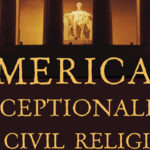Posted: 3/05/04
Court rules states can't be forced to fund religion
By Robert Marus
Associated Baptist Press
WASHINGTON (ABP)–The Supreme Court has ruled that, while the First Amendment may allow a state to fund scholarships to religious schools, it doesn't require all states to do so.
In their 7-2 Locke vs. Davey decision, the justices handed a major victory to supporters of strict church-state separation and a defeat to the Bush administration and other proponents of government funding for religious enterprises.
It pitted the state of Washington against one of its residents who was denied a state-funded college scholarship because he had chosen ministerial studies as his major.
The court ruled the state could deny Joshua Davey the scholarship by appealing to a section of its constitution that forbids indirect government funding of religious instruction.
The court's opinion cited the history of laws from around the country that explicitly forbid the imposition of taxes to pay for clerical salaries or training. The justices said Washington had a compelling state interest in maintaining that tradition.
“Given the historic and substantial state interest at issue, we therefore cannot conclude that the denial of funding for vocational religious instruction alone is inherently constitutionally suspect,” noted Chief Justice William Rehnquist, who wrote the majority's opinion.
In the case, Davey applied in 1999 for the state's Promise Scholarship Program, which provides state-funded tuition grants, or vouchers, to disadvantaged Washington students. The scholarships may be spent at any accredited Washington college, including religious ones.
Davey qualified for the scholarship and elected to spend it at Northwest College, a Seattle-area Bible college affiliated with the Assemblies of God. However, the state revoked the grant when Davey declared a double major that included pastoral ministries. State guidelines for the program permitted it to be spent at religious schools but not for pre-ministerial courses of study.
Davey then sued the state. Among other claims, he contended being denied the scholarship simply because he was training to be a pastor violated his First Amendment right to free exercise of religion.
In 2002, the Supreme Court upheld the constitutionality of an Ohio program that provided vouchers for use in private schools, including religious ones. Justices decided that case on a 5-4 vote.
However, in the Davey case, the court was not deciding whether states may engage in funding religious scholarships, but whether they must.
The court disagreed with Davey's contention that Washington state displayed unconstitutional animus toward religion because it singled out students training for religious vocations for special disfavor. The justices said Washington has the right to treat ministerial training differently because the U.S. Constitution treats religion differently.
“The subject of religion is one in which both the United States and the state constitutions embody distinct views–in favor of free exercise, but opposed to establishment–that find no counterpart with respect to other callings or professions,” Rehnquist wrote. “That a state would deal differently with religious education for the ministry than with education for other callings is a product of these views, not evidence of hostility toward religion.”
However, Justice Antonin Scalia disagreed.
“Let there be no doubt: This case is about discrimination against a religious minority,” Scalia wrote in a dissenting opinion. He was joined by Justice Clarence Thomas.
The decision elated advocates of church-state separation.
“It is an extremely important and positive development in church-state law,” said Holly Hollman, general counsel for the Washington-based Baptist Joint Committee on Public Affairs. “I do think it is likely to have an impact on the current debates about vouchers and funding of religious charities.”
Hollman said another crucial aspect of the opinion was its strong endorsement of the idea that religion has a special constitutional role.
“One of the best things is that the court so soundly rejected the idea that to treat religion differently was the same as hostility toward religion,” she noted.













We seek to connect God’s story and God’s people around the world. To learn more about God’s story, click here.
Send comments and feedback to Eric Black, our editor. For comments to be published, please specify “letter to the editor.” Maximum length for publication is 300 words.